Hollywood Hotel

Brief Synopsis
Cast & Crew
Busby Berkeley
Dick Powell
Rosemary Lane
Lola Lane
Hugh Herbert
Ted Healy
Film Details
Technical Specs

Synopsis
Ronnie Bowers, a singer and saxophone player with Benny Goodman's orchestra has been placed under contract by All Star Pictures. They book him into the Hollywood Hotel, which is also the residence of All Star luminary Mona Marshall. The afternoon before the premiere of her latest movie, Mona is interviewed by Louella Parsons, who breaks the news that Mona will not get the lead in a new film. Because her heart was set on starring in this film, Mona decides not to go to the premiere and disappears from her hotel. Publicist Bernie Walton holds a casting call to find a woman who looks enough like Mona to pass for her at the premiere and finds Virginia Stanton, whose only work in Hollywood has been as Mona's stunt double. Since Mona's usual escort, Alexander Dupre, will spot the substitution, they assign Ronnie to be her date. Ronnie is smitten with Virginia while thinking she is Mona. The next day, Mona returns and, in a fit of temper, demands that Ronnie and Virginia be fired. Ronnie is dumbfounded by Mona's behavior until Bernie reveals that he is really in love with Virginia. Virginia gets Ronnie a job as a car hop, where director Walter Kelton overhears his singing. Kelton offers Ronnie a job dubbing Dupre's voice in the new Mona Marshall movie. Louella is so charmed by what she thinks is Dupre's voice that she invites him to sing with Mona on the Hollywood Hotel program. The studio asks Ronnie to dub the voice again, but Virginia negotiates a terrific deal for him. Then pretending to be Mona, she kidnaps Dupre, and Ronnie stands in for him at the studio. He is a big hit, and for an encore, Virginia once again pretends to be Mona and sings along with him.

Director

Busby Berkeley
Cast

Dick Powell

Rosemary Lane

Lola Lane
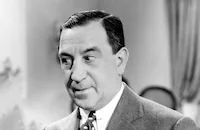
Hugh Herbert

Ted Healy

Glenda Farrell
Johnnie Davis
Louella Parsons
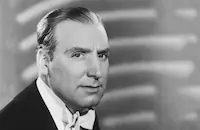
Alan Mowbray
Mabel Todd

Frances Langford
Jerry Cooper
Ken Niles
Duane Thompson
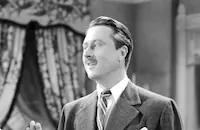
Allyn Joslyn
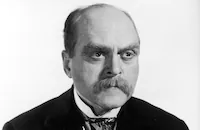
Grant Mitchell

Edgar Kennedy

Fritz Feld

Curt Bois
Perc Westmore
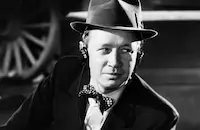
Eddie Acuff
Clinton Rosemond

William Davidson
Wally Maher
Georgia Cooper
Libby Taylor
Joe Romantini
Paul Irving
Raymond Paige And His Orchestra
Benny Goodman And His Orchestra
Ziggy Elman
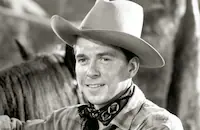
Ronald Reagan
Jeffrey Sayre

Jack Mower
Marianne Edwards
Sunny Bupp
David Leo Tillotson

John Ridgely
Jackie Morrow
William Worthington
Billy Wayne
Harry Fox
John Harron
Georgie Cooper
David Newell
Patsy Kane
Frances Morris
Sidney Perlman
Bobby Watson
Lester Dorr
Allen Fox
Allan Conrad
Edward Earl Ray
Owen King

George O'hanlon
Jean Maddox
Jr. George Offerman
Betty Farrington
Helen Dickson
George Guhl
Jerry Mandy
Demetris Emanuel

Carole Landis
John Sheehan
William Mansell

Rosella Towne
Dina Smirnova
Jean Perry
Robert Homans
Alan Davis
Al Herman
Al Shean
Milton Kibbee
Harrison Greene
Clinton Rosemond
Pearl Adams
Helen Valkis
Ellen Clancy
Don Barclay
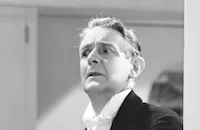
Leonard Carey
Dan Wolheim
Crew
George Amy
George Barnes
Sam Bischoff
Buddy Desylva
Bob Fellows
Leo F. Forbstein
David Forrest
Bryan Foy
Oliver S. Garretson
Benny Goodman
Robert Haas
Ray Heindorf
Al Jolson
Matty King
Maurice Leo
Maurice Leo
Gene Lewis
Richard Macauley
Johnny Mercer
Joseph Meyer
Orry-kelly
Raymond Paige
Charles Rosher
Russ Saunders
Joe Venuti
Jerry Wald
Jerry Wald
Jack L. Warner
Richard Whiting

Videos
Movie Clip


Trailer
Film Details
Technical Specs

Articles
Hollywood Hotel
Its impact at the time was enhanced by one of Busby Berkeley's most virtuosic pieces of visual underpinning ever. That's the second thing that makes it a treasure. Against the music, he sets a sinuous line of dancers in motion, costumed in gowns suggesting inverted calla lilies. In and out they weave through a montage of the neon signs of the meccas that were logos for Movieland: The Brown Derby, The Trocadero, The Ambassador Hotel, Grauman's Chinese Theatre, Hollywood Boulevard. It's a Deco dream, with Benny Goodman's musicians lining out the music in a motorcade to an airport, each instrumentalist standing and tooting away in a chauffeured open roadster emblazoned with placards kidding the likes of Gable, Garbo and Olivia de Havilland, with vocals courtesy of Frances Langford and Johnny "Scat" Davis.
Watching Goodman in action is no small part of the eminently preservation-worthy and highly watchable Hollywood Hotel. It's difficult for latter-day audiences to picture a tall, bespectacled clarinetist leading a band to the same kind of hysterical audience response as Elvis and the Beatles. But Goodman was one of the Swing Era luminaries who did. Sharing musical honors onscreen with Raymond Paige and the latter's much more conventional studio orchestra, Goodman is asked only to play himself in bandleading context, which he does with smiling aplomb.
In this pre-TV era, studios cleaned up by giving audiences a way to see as well as hear the musicians they idolized on radio and records. The bandleaders and their personnel were asked only to appear in musical context. Their multitudes of fans wouldn't have it any other way. So it is here, where the centerpiece is the Goodman aggregation's performance of "Sing, Sing, Sing" -- the "Sacre du Printemps" of big band jazz -- with its growls, wails, motor rhythms and spotlit solos by drummer Gene Krupa, trumpeter Harry James, clarinetist Goodman, pianist Teddy Wilson and vibraphonist Lionel Hampton.
The performance of "Sing, Sing, Sing" here paved the way for Goodman's milestone Carnegie Hall concert days after the film's premiere at the Strand Theatre in January, 1938. Goodman had been undecided about the Carnegie idea suggested by his publicist Wynn Nathanson, fearing it would backfire by being perceived as an ill-advised publicity stunt. But the rapturous reception of Hollywood Hotel by his fans, and the sight of would-be ticket buyers lining up around the block convinced him. The result made jazz history. Columbia's landmark recording of that concert has remained a staple through the LP and CD eras. Also noteworthy is the fact that the film broke the color line by presenting a racially integrated band, with no second-class citizens, as Wilson's and Hampton's solos make clear. (At the same time, cringe-inducing racial stereotypes are tossed through the film like confetti!).
But if Goodman's name was the one that sold most of the tickets, Warner studio execs bolstered the film by topcasting their biggest male musical star, Dick Powell. His sunny chorus boy eagerness keeps his gentlemanliness from growing wooden as a saxophonist with the Goodman band, who gets a shot at the movies. (The band seeing him off on his L.A.-bound TWA Skyliner early product placement! -- is the pretext for the opening motorcade sequence.) Almost immediately, he runs afoul of the studio's temperamental star (Lola Lane). Walking off in a huff over not landing a big role, she thinks she has the studio over a barrel by refusing to attend her own premiere. When the studio outfoxes her by hiring her stunt double (Rosemary Lane her real-life sister) to stand in on the red carpet and presses newcomer Powell into service as her escort, he becomes a casualty once the studio makes peace with its temperamental star. Of course, Powell's movie novice falls for the double, who also gets bounced.
She has had the good sense to retain her waitressing job. He and his newfound manager (Ted Healy) work as waiters in a drive-in run by Edgar Kennedy to a counterpoint of perpetually breaking dishes. Both eventually make their way back up the career ladder with a little help from their friends. They include real-life Hollywood gossip queen Louella Parsons, over whose coiffed, tiared head floats a halo of self-delight at being allowed to play herself. Powell's would-be crooner climbs out of $100-a-song anonymity as the invisible voice dubbing the songs sung by the star's leading man, the ever irresistibly gassy Alan Mowbray, who literally gets taken for a ride so that things can be put right at the end.
Not that anybody doubted they would be. Hollywood Hotel was never about plot, and this one has the good sense to not get in the way of the main attractions. Mowbray, Healy, Kennedy, Hugh Herbert and other reliables from Hollywood's rich gallery of character actors largely avoid the formulas and idiocies attached to their roles (although Herbert is almost swamped by the nonsensical role of the diva's father, who ruins a perfectly good Gone with the Wind send-up with a ghastly Uncle Tom blackface routine!). The Lane sisters were two of five daughters of an Iowa dentist and his wife (their sibling, Priscilla, enjoyed an even bigger career than they did). Their ability to seem good sports helps sustain the silliness, and Glenda Farrell, as the no-nonsense secretary to the scenery-chewing star, provides a welcome astringency.
Busby Berkeley's best choreography involves the cameras he kept moving around to creatively photograph Paige's orchestra in a big band arrangement of the traditional Russian fave, "Dark Eyes." Hollywood Hotel brought to an end Berkeley's lavish Warner budgets that yielded such classics as Footlight Parade (1933) and the Gold Diggers musicals. This film additionally offers a few of the nuggets so dear to the trivia-gathering hearts of movie buffs. There was a Hollywood Hotel. It sat on the land now occupied by the Kodak Theater, site of the Oscar® presentations. The film's inspiration if it can be called that was, however, a popular CBS radio program of that name, built around Parsons.
It figures in the story, as does its announcer, Ken Niles. Look for an unbilled Ronald Reagan as a radio announcer on the red carpet at the premiere of the film within the film. Carole Landis can be seen briefly as a hatcheck girl. Susan Hayward shows up in her unbilled Hollywood debut, cast as a starlet at a nightclub table. And it wouldn't be a Warner film of the '30s without a Bette Davis story, would it? This one involves the studio wanting her to play both the diva and her double. Davis talked her way out of it, arguing that the film had none of the dramatic dimension in which she excelled, and additionally called for her to do a musical number in the Hollywood Bowl, in which, she was wise enough to point out, she would not have shone. Meanwhile, Hollywood Hotel remains a choice entry in the sub-genre of big band musicals.
Director: Busby Berkeley
Cinematography: George Barnes, Charles Rosher
Music: Ray Heindorf, Heinz Roemheld (both uncredited)
Film Editing: George Amy
Cast: Dick Powell (Ronnie Bowers), Rosemary Lane (Virginia Stanton), Lola Lane (Mona Marshall), Hugh Herbert (Chester Marshall), Ted Healy (Fuzzy), Glenda Farrell (Jonesie), Johnnie Davis (Georgia), Alan Mowbray (Alexander Dupre).
BW-110m. Closed captioning.
by Jay Carr
SOURCES:
New York Times review, January 13, 1938
Encyclopedia of the Musical Film, by Stanley Green, Oxford University Press, 1981
Encyclopedia of Film, by Ephraim Katz, Putnam, 1982
New Biographical Dictionary of Film, by David Thomson, Knopf, 2003
The Busby Berkeley Book, by Busby Berkeley with Tony Thomas and Jim Terry, New York Graphic Society, 1973
Inside Warner Bros. (1935-1951), by Rudy Behlmer, Viking, 1985
IMDb

Hollywood Hotel
Ronald Reagan, 1911-2004 - TCM Remembers Ronald Reagan
Ronald Reagan, the actor turned elected official whose fascinating career saw him develop as a contract player for Warner Brothers studios, to a politician who fulfilled his ambitions by becoming the 40th President of the United States, died at his home in Los Angeles on June 5 after a long battle with Alzheimer's disease. He was 93.
He was born Ronald Wilson Reagan on February 6, 1911 in Tampico, Illinois to John and Nelle Reagan. When Reagan was nine, his family settled down in the small community of Dixon, about 100 miles west of Chicago. After high school, Reagan enrolled in Eureka College, a small Christian school near Peoria. He graduated in 1932 with a degree in Economics, and pursued a career in broadcasting. His first gig was as a part-time announcer at WOC in Davenport, Iowa. Within a year, WOC had merged with its big-sister station, WHO in Des Moines, and Reagan was hired as a sports announcer.
In the spring of 1937, Reagan drove to Southern California to catch the Chicago Cubs in spring training on Santa Catalina Island. While he was in California, he wrangled a screen test and signed a contract for $200 a week with Warner Brothers. His film debut was rather inauspicious; he portrayed a radio announcer in an innocuous comedy Love is on the Air (1937). He made a few more "B" programmers like Hollywood Hotel (also 1937), and Girls on Probation (1938), before getting his first prominent role opposite Bette Davis in the popular tearjerker, Dark Victory (1939).
Although he seldom got credit for being a good actor, there was no denying that Reagan held his own given the right material: Knute Rockne, All American as the doomed Notre Dame football hero George "The Gipper" Gipp, where he delivered the film's immortal line "Win one for the Gipper!"; Santa Fe Trail in which he ably supports Errol Flynn in one of the boxoffice hits of its era (both 1940); Kings Row (1941), featuring one of his finest performances as a small-town playboy whose legs are amputated by a careless surgeon; and Desperate Journey (1942) where he again supported Flynn in an exciting action picture.
Due to his poor eyesight, Reagan didn't see any action in World War II, so the studio heads assigned him to star in a series of patriotic films produced by the First Motion Picture Unit of the Army Air Forces in Culver City. Between 1942-45, Reagan starred in over 400 of these films. After the war, Reagan still found some good roles: The Voice of the Turtle (1947) proved he had a deft hand at light comedy opposite Eleanor Parker; The Hasty Heart (1949) offered another underrated performance as he ably portrayed the Yank in John Patrick's much heralded wartime play; and Storm Warning (1950) was a slick melodrama that cast Reagan as a crusading District Attorney determined to bring the KKK in a small southern town, with the help of Doris Day and Ginger Rogers!
It was around this time that Reagan became involved in politics. In 1947, he began a five-year term as president of the Screen Actors Guild (SAG), and testified in October of that year before the newly formed House Un-American Activities Committee (HUAC). He identified suspected Communists Larry Parks, Howard Da Silva and Alexander Knox, all of whom were subsequently called to testify, and subsequently blacklisted. Later records showed Reagan was so concerned about the Communist influence in Hollywood, that he became an FBI informer.
As Reagan became steeped in his political career, his parts throughout the '50s became inferior: the notorious Bedtime for Bonzo (1951); the coy "sex" comedy She's Working Her Way Through College (1952) that cast him as a college professor who romances a stripper! (Virginia Mayo); Cattle Queen of Montana (1955), a sluggish Western that even the redoubtable Barbara Stanwyck couldn't save; and finally Hellcats of the Navy (1957), a stodgy war picture that would be his only film that co-starred his wife Nancy (Davis).
Television offered some salvation. For eight years, (1954-62), Reagan served as the host of General Electric Theater, a televised series of dramas. He also found a niche as GE's goodwill ambassador to employees and to civic and business groups around the country, furthering his taste and honing his craft as a public official. By the mid '60s, Reagan would move into politics entirely, save for one last film, the thrilling The Killers (1964), Reagan's only known villainous role, as a murderous gangster. That same year, he actively campaigned for Republican Presidential candidate Barry Goldwater, although Goldwater lost to Lyndon B. Johnson.
Reagan whose profile was riding high, had cemented his future as a successful politician. In 1966, he ran against incumbent Governor Pat Brown for the state of California and won, serving successfully for two terms until 1974.
Reagan began an all-out, two-year drive to wrest the 1976 nomination from incumbent Gerald R. Ford, an appointed vice president who became president on the resignation of Nixon. Reagan fell short by a handful of delegates to the Republican national convention. But Ford lost to Jimmy Carter, and Reagan became the front-runner to challenge Carter in 1980. After defeating Carter, Reagan held two terms as President of the United States (1981-89). After his second term was over, he retired quietly in California. In 1994, it was revealed to the media that Reagan was suffering from Alzheimer's disease; he had been kept out of the public eye since then.
He was married briefly to actress Jane Wyman (1940-48), and had two children; a daughter Maureen and an adopted son, Michael. In 1952, he married a budding film starlet, Nancy Davis, who bore him two more children; a daughter, Patty; and a son, Ronald Jr. Ronald Reagan is survived by Nancy, Michael, Patty and Ron Jr. His daughter Maureen died of Melanoma in 2001 at the age of 60.
by Michael T. Toole
Ronald Reagan, 1911-2004 - TCM Remembers Ronald Reagan
Quotes
Trivia
Notes
In an article in Hollywood Reporter, Roy Del Ruth wrote that the Hollywood Hotel was an early gathering place for movie industry people, attracting the likes of Mary Pickford and Douglas Fairbanks to Thursday night dances. The film includes shots of the exterior of the hotel, which was no longer prominent at the time of the film. This film was based on a popular radio program of the same name, which was broadcast from the hotel. An ad in Hollywood Reporter notes that the Orchid Room, site of the radio broadcasts, was created especially by Warner Bros. for the movie. Contemporary sources credit either Bryan Foy or Sam Bischoff as producers, although neither was credited on the film itself. Hollywood Reporter notes that Bette Davis was to star in the film. Contemporary sources mention that George Barnes photographed the finale.
Louella Parsons, who hosted the Hollywood Hotel radio program, made her screen debut in this production. According to Hal Wallis's autobiography, Campbell Soup, who sponsored Parson's radio show, sued Warner Bros. for using the title without authorization, as did the owners of the Hollywood Hotel. Actor Ted Healy, who portrayed the character Fuzzy, died of a heart attack a few hours after attending the film's preview. For more information on Healy's death, consult the entry below on Of Human Hearts.

Miscellaneous Notes
Released in United States Winter January 15, 1938
Ronald Reagan has an uncredited role as a radio announcer.
Released in United States Winter January 15, 1938














